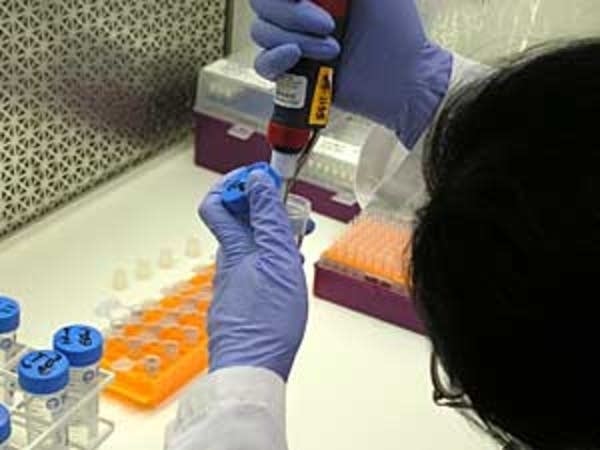Plan tackles the ethical questions in a flu pandemic
Go Deeper.
Create an account or log in to save stories.
Like this?
Thanks for liking this story! We have added it to a list of your favorite stories.

The report was compiled by the Minnesota Center for Health Care Ethics and as the group's name implies, its goal is to find ethical approaches to health care problems - in this case, rationing what's sure to be a scarce supply of influenza vaccine if a worst-case pandemic develops.
To put the scarcity issue into perspective, public health officials estimate that it will take at least six months before any vaccine can be developed following a pandemic flu outbreak. Even when those vaccines are ready, they'll be extremely limited. Minnesota is only expecting to receive enough doses in the first three months of production to vaccinate about 8 percent of the population.
Of Minnesota's more than five million people, who should get vaccinated first?
The federal government says front-line health care workers should be first in line. But co-author of the report and center director Karen Gervais says that standard is overly broad, because there won't be enough vaccine initially for all health care workers. She also says it's wasteful to automatically immunize every health care worker.
Turn Up Your Support
MPR News helps you turn down the noise and build shared understanding. Turn up your support for this public resource and keep trusted journalism accessible to all.
"We think that that leads to use of vaccine that is not best for all of us. There are other groups in Minnesota who may, if it's anything like 1918-19, have a disproportionately high risk of dying," she says.
She's talking about young healthy people. Evidence from the deadly 1918 flu pandemic shows that people between the ages of 15 and 40 had the highest mortality rate. That's because their immune systems went into overdrive in what's described in the medical literature as a "cytokine storm". "The cytokine response means the lungs literally fill with fluid and the person drowns. And it's the healthy lungs, the healthy immune system that does this as a response to the invading virus. So that's what puts the healthy person ironically at the greatest level of risk."
Gervais says healthy people also happen to respond best to vaccines so it makes sense to give them immunize them first. But the report doesn't suggest that all 15 to 40 year olds get priority, just those who are essential workers in health care or public safety jobs.
The report also recommends vaccinating key government leaders immediately and people called "vaccinators" who will deliver vaccines, staff vaccine clinics and provide security at those clinics.
After these people all get vaccinated along with high-risk essential workers, then vaccines will become available to other high-risk groups and the remaining health care workers.
Gervais says this approach is designed to not only minimize deaths, it's also aimed at helping preserve the state's infrastructure.
"Certainly (Hurricane) Katrina showed us that infrastructure, when it fails, is disastrous in terms of loss of life and loss of quality of life. So that's something now that the public has in its mind, which it wouldn't have had nearly so clearly without Katrina."
Gervais says those who are not given priority to receive vaccine shouldn't lose hope. She says this plan is designed to protect them too by immunizing people who would be most likely to spread it to others. She says there are ways they can protect themselves without a vaccine, including temporary isolation and quarantine.
University of Minnesota medical ethicist Jeffrey Kahn didn't participate in the report. But he thinks the authors took the right approach.
"These are the really important questions about what happens in a public health emergency that we've luckily never faced, but would be good to prepare for," he says.
The authors say their vaccine suggestions are simply a sample of one type of plan Minnesota could adopt. They say in the end, it's up to public officials to make the tough decisions about who will get vaccinated and who will not.
Dear reader,
Your voice matters. And we want to hear it.
Will you help shape the future of Minnesota Public Radio by taking our short Listener Survey?
It only takes a few minutes, and your input helps us serve you better—whether it’s news, culture, or the conversations that matter most to Minnesotans.




